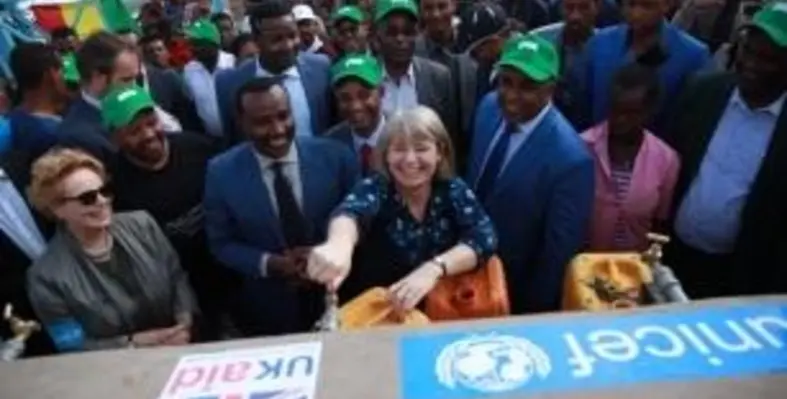Ethiopia has inaugurated model water supply and waste management project in Oromia Region, with an aim to provide sufficient clean drinking water and sanitation facilities to the population of the Welenchiti town and surrounding rural areas
Part of the ONEWASH Plus programme, the system integrates solutions to provide water supply, sanitation and hygiene (WASH) services to more than 48,000 people including more than 22,000 children under the age of 15, residing in the town and its satellite villages.
Dr Negash Wagesho, state minister of water, irrigation and energy, said that the Ministry has planned to achieve clean water supply coverage at rural, urban and national levels at the end of the second growth and transformation plan. To achieve the target, the Ministry is working hand in hand with donors, non-governmental organisations and communities.
As Ethiopia’s rapid urbanisation and urban development have resulted in increased water stress and high potential for disease outbreaks, the demand is growing for developing adequate, resilient, sustainable and inclusive WASH services in the region, which will also meet the targets set in the SDGs.
Providing clean drinking water and sanitation facilities
“This project can provide sufficient clean drinking water and sanitation facilities to the population of the Welenchiti town and surrounding rural areas for the coming 20 years. The project enhances the coverage of the clean water supply of town to its fullest potential. The Ministry appreciates the support and contribution of the DFID and UNICEF to the water sector,” Wagesho added.
Harriett Baldwin, the UK minister for Africa, said that the Welenchiti project represented the partnership between the UK, UNICEF and regional and federal government delivering improvements to local people’s livelihoods.
UNICEF Representative Gillian Mellsop noted, “Women and girls no longer have to walk long distances and spend many hours fetching water. Girls can go to school and attend to their schoolwork while mothers have enough time to spend with their children and engage in other productive activities. For communities, a safe and clean environment means fewer disease outbreaks.”
The ONEWASH Plus programme, funded by the UK through DFID and by regional governments, is implemented by UNICEF in collaboration with the Ministry of Water, Irrigation and Energy, regional sector bureaus, and the Water Resource Development Fund. The programme also works with the Ministry of Health, the Ministry of Urban Development and Construction, and respective Sector Regional Bureaus, as well as town administrations and town water supply and sewerage utilities.












